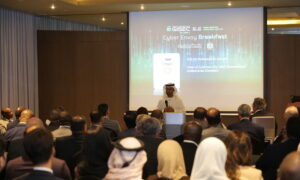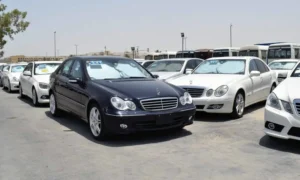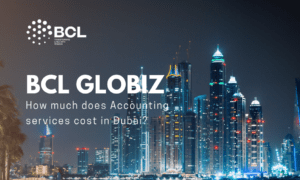Dubai’s financial market is a bustling hub of economic activity in the Middle East and one of the fastest-growing financial markets in the world. With its strategic location, business-friendly policies, and strong infrastructure, Dubai has emerged as a major player in the global financial landscape.
The origins of Dubai’s financial market can be traced back to the early 1970s when the country first discovered oil reserves. As revenues from oil began to pour into the country, there was a need for a more organized and sophisticated financial system to manage these funds effectively. This led to the establishment of various institutions such as banks, investment companies, insurance companies, and stock exchanges.
Today, Dubai’s financial market consists of two main stock exchanges – Dubai Financial Market (DFM) and Nasdaq Dubai. DFM was established in 2000 as the first stock exchange in the region to operate on an electronic trading system. It provides a platform for local companies to raise capital through equity or debt instruments while also offering investors opportunities for profitable investments.
Nasdaq Dubai, on the other hand, was launched in 2005 as part of an initiative by Dubai government-owned company Borse Dubai. It is primarily focused on listing securities from international issuers such as equity shares, bonds, derivatives, and ETFs (Exchange-Traded Funds).
Dubai’s Financial Market
One of the reasons why Dubai’s financial market has thrived over the years is due to its regulatory framework that promotes transparency and stability. DFM is regulated by the Securities and Commodities Authority (SCA), which oversees the operations of all financial markets in the United Arab Emirates. The SCA ensures that DFM operates in line with international standards and best practices to maintain its reputation as a transparent and well-regulated financial market.
In 2014, DFM also launched the “Smart Services” platform, which provides investors with easy access to various services such as trading, account management, and information dissemination. This initiative has helped attract more investors to the market and has contributed to its growth.
Major Players in the Market
Some of the major players in Dubai’s financial market include government entities, multinational corporations, international banks, investment firms, and individual investors. Let’s take a closer look at each of them to understand their role in shaping Dubai’s thriving financial landscape.
- Government Entities
The Government of Dubai has played a crucial role in developing the city into a leading global financial center. The Dubai International Financial Centre (DIFC) was established by the government in 2004 as an independent jurisdiction within the city to attract international companies and institutions to set up their offices there. The DIFC also houses some of the world’s top financial regulators such as the DFSA (Dubai Financial Services Authority) and the DIFC Courts.
- Multinational Corporations
Many multinational corporations have chosen to establish their regional headquarters or offices in Dubai due to its strategic location between Asia and Europe, favorable tax laws, and ease of doing business. These companies operate in various sectors such as finance, insurance, real estate, logistics, and technology, bringing in significant investments and creating job opportunities for local residents.3. International Banks
Dubai’s financial market is home to several international banks that offer a wide range of financial services to individuals and businesses. These banks play a crucial role in providing financing for various projects and investments in the city.
- Investment Firms
There are numerous investment firms operating in Dubai’s financial market that cater to different kinds of investors – from high-net-worth individuals to institutional investors. These firms provide a range of services such as asset management, wealth management, private equity investments, venture capital funding, and more.
Investment Opportunities in Dubai’s Financial Market
Dubai’s financial market is a dynamic and rapidly growing sector that offers numerous investment opportunities for individuals and businesses alike. From its well-established stock exchange to its flourishing real estate market, Dubai has become a top destination for investors looking to diversify their portfolios. Such investment opportunities include;
- Real Estate Investments
Real estate investments have been a significant contributor to Dubai’s thriving financial market. The city’s real estate sector has experienced rapid growth over the past few decades, making it one of the most sought-after destinations for property investors from around the world.
One of the main reasons behind this growth is the government’s proactive approach towards creating a business-friendly environment and promoting foreign investment. This has led to an influx of businesses and expats, resulting in a high demand for residential and commercial properties.
Dubai offers a diverse range of real estate investment options, catering to both conservative and aggressive investors. From luxury villas and high-end apartments to affordable housing projects, there is something for everyone in this bustling metropolis.
One of the key drivers of Dubai’s real estate market is its freehold ownership system. Unlike other countries where foreigners are restricted from owning land, Dubai allows expats to own properties in designated areas on a freehold basis. This has opened up endless opportunities for international investors who are looking to diversify their portfolio or secure a second home.
Furthermore, Dubai’s strategic location at the crossroads of Asia, Europe, and Africa makes it an attractive hub for trade and commerce. As a result, there is always high demand for office spaces and commercial properties in prime locations such as Downtown Dubai and Business Bay.
- Stock Market Investments
The stock market is a crucial component of Dubai’s thriving financial market. It is a key indicator of the economic growth and stability of the city. In this section, we will delve into the various aspects of stock market investments in Dubai and how it contributes to the overall financial success of the city.
The history of the stock market in Dubai dates back to 2000 when the Dubai Financial Market (DFM) was established. It was initially known as the Dubai Securities Market and was created as a joint-stock company under UAE Federal Law No. 8, with a paid-up capital of AED 42 million.
In DFM, there are two types of stocks – public joint-stock companies (PJSCs) and private joint-stock companies (PrJSCs). PJSCs are open for public investment through IPOs while PrJSCs are only open for investment by institutional or qualified individual investors.
- Islamic Finance Options
Dubai’s financial market has been experiencing rapid growth in the recent years, with a significant contribution from the Islamic finance sector. Islamic finance is a financial system that operates according to Shariah law, which prohibits interest-based transactions and promotes ethical and socially responsible investment practices. In this section, we will delve into the various Islamic finance options available in Dubai’s financial market.
In Dubai, there are several banks that offer Islamic banking services, also known as Shariah-compliant banking. These banks follow principles of risk-sharing and profit-sharing instead of charging interest on loans or deposits. Some popular Islamic banks in Dubai include Dubai Islamic Bank, Emirates Islamic Bank, and Abu Dhabi Islamic Bank.
- Sukuk (Islamic Bonds)
Sukuk refers to bonds that comply with Shariah principles by providing returns through asset-backed investments rather than interest payments. These bonds have gained popularity in Dubai’s financial market due to their ability to attract both local and international investors looking for halal investment opportunities.
- Takaful (Islamic Insurance)
Takaful is an alternative form of insurance based on the concept of mutual cooperation and solidarity among its participants. Unlike conventional insurance policies that involve elements of uncertainty and gambling, Takaful follows strict guidelines laid down by Shariah law to ensure fair dealings between all parties involved.
Potential Risks and Challenges in the Market
The financial market in Dubai has experienced significant growth and success in recent years, attracting investors from all around the world. However, as with any market, there are potential risks and challenges that must be considered when investing in Dubai’s financial sector.
- Economic Instability: One of the major risks in the Dubai financial market is its vulnerability to economic instability. The country heavily relies on its oil industry, which makes up a significant portion of its GDP. Any fluctuations or downturns in global oil prices can have a direct impact on the economy and consequently on the financial market.
- Geopolitical Tensions: Another challenge for investors is the geopolitical tensions in the Middle East region. Dubai has managed to maintain political stability compared to some of its neighboring countries, but any sudden changes or conflicts could have an adverse effect on the market.
- Regulatory Changes: The regulatory framework for the financial market in Dubai is constantly evolving, which can pose challenges for investors trying to keep up with new policies and regulations. This also means that there may be changes to tax laws and other regulations that could impact investments.
- Volatility: Like any other emerging market, Dubai’s financial sector is prone to volatility. Fluctuations in currency exchange rates, interest rates, and stock prices can lead to uncertainties for investors and may affect their returns.
Conclusion
Dubai’s financial market has emerged as one of the fastest-growing and most dynamic in the world, attracting investors from all corners of the globe. Its strategic location, stable political environment, visionary leadership, and consistent efforts towards economic diversification have made it a global hub for business and investment. One of the main reasons why Dubai’s financial market is worth exploring is its regulatory framework. The government of Dubai has taken significant steps to ensure a transparent and efficient regulatory environment, which has boosted investor confidence. The Dubai Financial Services Authority (DFSA) oversees and regulates all financial services activities carried out within the Dubai International Financial Centre (DIFC), providing a robust legal system that protects investments and promotes fair competition.



































